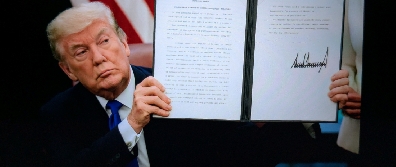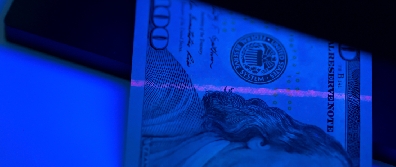This past year, Colorado passed SB24-131. Entitled "Prohibiting Carrying Firearms in Sensitive Spaces," the new bill has introduced stricter laws for the Concealed and open Carry of firearms. Proponents of the bill believe it will increase public safety by restricting the areas one can legally carry a firearm. Gun violence is an especially sensitive topic in Colorado, given multiple, high-profile mass shootings events including the 1999 Columbine High School shooting and the 2012 Aurora theater shooting.
While the new law took effect in July 1, there are many that have challenged the bill's second-amendment constitutionality, and it is likely that these challenges will persist into the 2025.
Sensitive Spaces
The new law expands the definition of “sensitive spaces” and prohibits concealed carry as well as the previous open carry. Concealed carry refers to any situation where the weapon is not immediately visible, such as when the firearm is tucked behind a shirt or in a purse or other kind of bag. A sensitive space refers to an area where firearms are not permitted due to their sensitive nature. Historically, these have included schools, but the new bill has expanded the list to include many more areas.
Supporters of the bill have argued that this change is necessary for public safety, citing clarity during emergencies; many believe that prohibiting firearms in certain areas helps reduce confusion during emergencies by ensuring that law enforcement can quickly to identify potential threats. The law also does not impose a blanket ban on general firearm possession within the state, but only "sensitive spaces." The bill was a compromise, however, and has left many unsatisfied.
Opponents of the bill have argued that the ban is unnecessary. Citizens with concealed carry permits are more likely to be responsible with their weapon and to keep others safe in the event of an emergency. One of the primary criticisms is that criminals don’t follow the law. If a perpetrator attempts to commit a mass shooting, they would completely disregard any firearm ban, leaving regular, law-abiding citizens at the mercy of the shooter.
What Spaces are Considered Sensitive?
SB24-131 expanded the list of “sensitive spaces” to cover:
- Local and State Government buildings, including offices
- Child-care centers
- Courthouses
Before the bill, an individual with a concealed carry permit could legally carry a concealed firearm into a city council meeting held in a municipal building. Now, however, carrying a firearm into the same municipal building is prohibited, regardless of concealed permit status.
Another “sensitive space” designated under SB24-131 is any child-care center. This includes any public or private elementary, middle, junior high, high, or vocational school; along with any public or private college, university, or seminary, with some exceptions. Before the bill, a parent with a concealed carry permit could legally carry a concealed firearm when picking up their child from a private elementary school. After the bill, carrying a firearm on school property is prohibited, with a few exceptions, regardless of permit status.
The bill also extends existing prohibitions to make it unlawful to carry a firearm, openly or concealed, at any polling location. The ban on firearms has been extended to include concealed carry within 100 feet of any polling location, including any central count facility, or within 100 feet of a ballot drop box during elections or related activities.
Exemptions Under Law
Law enforcement officers are exempted from the ban and can carry firearms as part of their official duties. Along with this, members of the United States Armed Forces or Colorado National Guard can lawfully carry their firearms in sensitive places in the lawful discharge of their duties. Authorized security personnel can carry their firearms as well.
The primary exemption for the average colorado citizens is that they may carry a concealed weapon in an adjacent parking lot to a sensitive area. The law still prohibits open carry of a firearm in adjacent parking lots to sensitive areas. This is primarily so they can take off their holster to store the weapon in their vehicle prior to entering the sensitive area.
The law also removed an exemption for lawmakers to carry concealed weapons into the capitol - starting Jan. 1., 2025, this exemption will expire.
New Penalties
Under SB24-131, knowingly carrying a firearm, whether openly or concealed, in prohibited government buildings, educational institutions, or polling locations is a class 1 misdemeanor. Class 1 misdemeanors are punishable by $500 to $5,000, and jail time of up to 364 days in jail.
As with other firearm crimes, supposed violations of Colo. Rev. Stat. § 18-12-105 come with the risk of losing both your property and your current firearm permit.
Additional Resources:
Colorado bill SB24-131– Read the original text of the new bill.
https://leg.colorado.gov/bills/sb24-131 - A summary and analysis of the bill, which discusses the changes it makes to the law going forward.
Hire a Criminal Defense Attorney in Colorado
If you're involved in a criminal case regarding a firearm crime, or own a concealed carry permit, it's important to know how the new law will affect your rights as a gun owner going forward. The Law Firm of Matthew Martin can provide the legal assistance you need to ensure your case is in the right hands, and you will be getting the best representation that you deserve.
Call 303-725-0017 for your free consultation, or visit us online to complete an online contact form.
The Law Office of Matthew A. Martin, P.C. accepts clients throughout the Denver area including Boulder County, Adams County, Arapahoe County, Jefferson County, and Broomfield County.















Comments